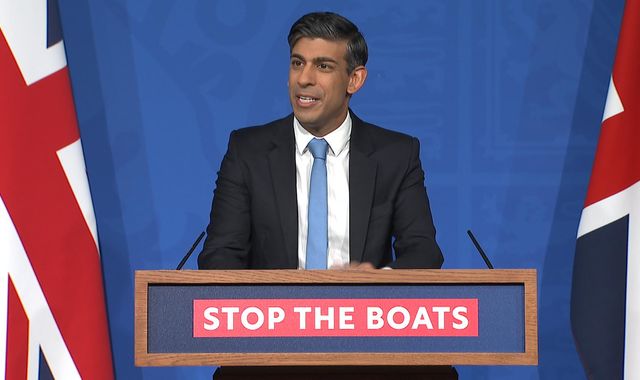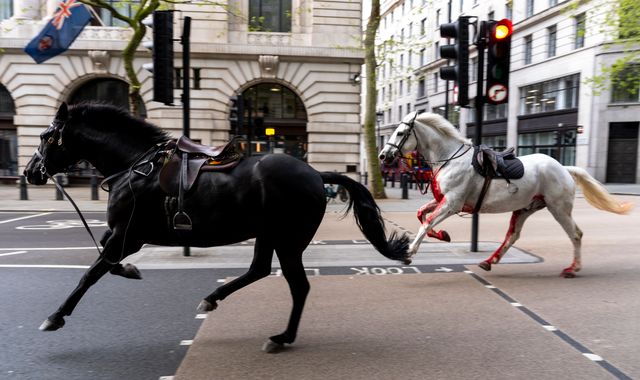MPs reject Lords' amendments to Rwanda bill - as crunch week for legislation begins
15 April 2024, 18:07 | Updated: 15 April 2024, 23:14

MPs have rejected a series of Lords' amendments to the government's Rwanda bill - as a week of parliamentary showdown on the legislation begins.
The Safety of Rwanda (Asylum and Immigration) Bill is currently in the middle of what is known as ping-pong, where the two houses propose, debate and vote on amendments.
So far, the Lords has proposed one set of amendments, all of which the Commons defeated.
And now a second set of Lords' amendments have been rejected by MPs - so the bill will return to the Lords on Tuesday for further scrutiny.
Politics latest: Sunak and Starmer call for 'restraint'
There was little deviation in today's debate from the previous times the Commons has considered the legislation.
Opening the debate, Home Office minister Michael Tomlinson said: "Here we are back again debating the same issues and amendments we have already rejected.
"We are not quite at the point yet of completing each other's sentences, but we are almost there."
Crunch week for bill
The government has made time in both the Commons and the Lords this week for more debating and voting to take place, with Downing Street hoping to get royal assent this week.
The Safety of Rwanda Bill aims to allow the government to send asylum seekers who arrived illegally in the UK to Rwanda, addressing concerns raised by the Supreme Court last year.
Part of the legislation declares Rwanda "safe", and prevents judges from considering how safe Rwanda is if someone appeals against being deported.
The Lords will consider the legislation on Tuesday afternoon.
Analysis: Sunak's battle to get planes in the air will continue even if Rwanda bill passes
The amendments they imposed have sought to address a slew of issues, including allowing appeals on the basis of safety, how underage asylum seekers are looked after, considerations around modern slavery concerns, and whether those who have served for or with the British armed forces should be exempted from deportation.
Over a series of six votes, the government won with majorities 65, 71, 70, 70, 74 and 59.
The closest vote was on the armed forces' amendment.
Peers had attempted to prevent people who had "positive reasonable grounds" to believe they were victims of modern slavery and human trafficking from being sent to Rwanda.
Due to the way parliamentary procedure works, if they had rejected this amendment completely the bill would have failed - instead, they have offered to provide a yearly report on modern slavery and how it relates to the Rwanda bill

























